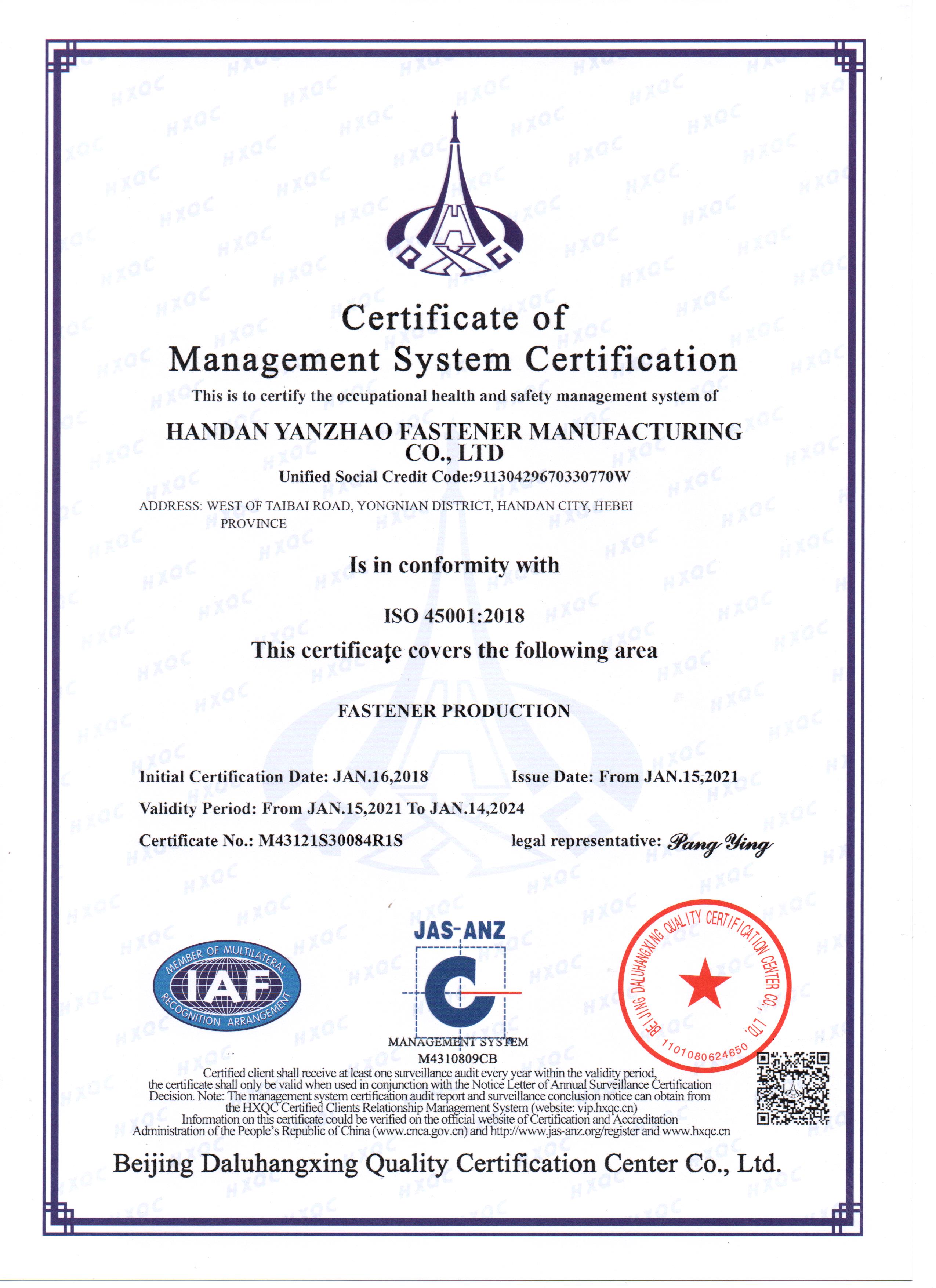Leading Exporters of SBC Header Bolts for Optimal Performance and Reliability
Aug . 18, 2024 14:05 Back to list
Leading Exporters of SBC Header Bolts for Optimal Performance and Reliability
The Global Market for SBC Header Bolts Exporters
In the intricate web of modern manufacturing and construction, the importance of quality fasteners cannot be overstated. Among these, SBC header bolts play a critical role in ensuring the structural integrity and performance of various machinery and equipment. As globalization progresses, the demand for these specialized fasteners has surged, creating a robust landscape for exporters in this niche market.
Understanding SBC Header Bolts
SBC header bolts are typically utilized in automotive and heavy machinery applications. They are designed to secure components and withstand significant stress and strain, making them essential for reliable operation. Due to their unique design and high-strength materials, SBC header bolts offer superior performance compared to standard fasteners. They are engineered to meet specific industry standards, ensuring that they can handle the rigors of demanding environments.
The manufacturing of SBC header bolts involves precision engineering and a commitment to quality. Producers often adhere to stringent international standards, such as ISO and ASTM, which influence their ability to enter and compete in global markets. The accuracy and durability of these bolts make them indispensable for industries ranging from automotive to construction.
Growing Demand in Global Markets
The global push towards more sustainable and efficient machinery has led to increased investment in high-quality components like SBC header bolts. As countries continue to industrialize, the demand for reliable fastening solutions has led to the emergence of numerous exporters. These exporters not only cater to local markets but also compete on a global scale, supplying high-quality bolts to manufacturers worldwide.
In markets like North America, Europe, and Asia, the growth of the automotive and construction sectors has directly impacted the demand for SBC header bolts. Factors such as the rise in electric vehicle production and advancements in construction technology have prompted manufacturers to seek robust and reliable fastening solutions, further fueling the need for exporters in this sector.
sbc header bolts exporters

Challenges Faced by Exporters
Despite the promising growth opportunities, exporters of SBC header bolts face several challenges. Fluctuations in raw material prices can significantly affect production costs, making it difficult for exporters to maintain competitive pricing. Additionally, tariffs and trade regulations in different countries can complicate the exporting process, creating logistical and financial hurdles.
Moreover, maintaining quality control while scaling up production can be a daunting task. Exporters must ensure that their products meet the stringent requirements of international markets, which can differ substantially. Therefore, investing in advanced manufacturing technologies and quality assurance processes is crucial for exporters aiming to succeed in this competitive landscape.
The Way Forward
To capitalize on the growing demand for SBC header bolts, exporters must focus on building strong relationships with their clients. Providing exceptional customer service, coupled with timely deliveries, can differentiate them in a crowded market. Additionally, integrating innovative manufacturing processes, including automation and industry 4.0 practices, can enhance efficiency and product quality.
Furthermore, expanding their reach through digital marketing and e-commerce platforms can enable exporters to tap into new markets and establish a global presence. As the demand for SBC header bolts continues to grow, those who prioritize quality, reliability, and customer satisfaction will undoubtedly thrive.
In conclusion, the market for SBC header bolts exporters is burgeoning, driven by growth in various high-demand industries. While challenges exist, the potential for success is significant. By focusing on quality, innovation, and customer relationships, exporters can navigate the complexities of the global market and secure their place in this vital sector of manufacturing.
Latest news
-
Premium Phosphated Drywall Screws Supplier | Durable, Rust-Resistant
NewsAug.27,2025
-
Reliable Wire Bolts Suppliers | Quality Zinc Plated Fasteners
NewsAug.26,2025
-
Wire Bolts Suppliers: Durable & Reliable Fasteners for Every Project
NewsAug.25,2025
-
Premium Cabinet Bolts Supplier | Wholesale & Custom Solutions
NewsAug.24,2025
-
Reliable Axle Nuts Supplier | Quality & Precision Fasteners
NewsAug.23,2025
-
Durable Bolts for Lawn Mower Handle - Top Supplier & Manufacturer
NewsAug.22,2025
